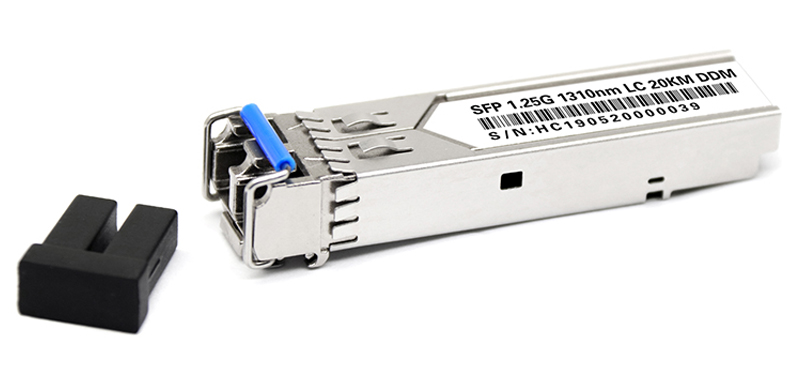
The English name of the optical module is: Optical Module. Its function is to convert the electrical signal into an optical signal at the transmitting end, and then transmit it through the optical fiber, and then convert the optical signal into an electrical signal at the receiving end.Simply put, it is a device for photoelectric conversion. In terms of volume, it is small in size and looks a bit like a USB flash drive for the first time. Don’t look at it, although it is not big, it plays a very important role in the construction of 5G.
Traditional data centers are mainly based on 10G network architecture. However, as data traffic continues to grow, data centers are under greater pressure. Therefore, it is imperative to upgrade related equipment.In the 5G era, the number of base stations will usher in a big explosion.At the same time, due to the rapid and rapid growth of data volume in the 5G era, the performance and quantity of optical modules will increase greatly.
The 400G hot-swappable optical module is called CDFP. The CDFP has three generations in history, divided into two card slots, half-transmitted and half-received.Many 10G, 40G, 100G, and 400G optical module standards are proposed by the IEEE 802.3 working group.In addition, there is an MSA protocol.The biggest difference with the IEEE is that the multi-source protocol MSA is more like a private unofficial organization form, which can form different MSA protocols for different optical module standards. It is precisely because the standards have been standardized, and today, optical modules are unified in structural packaging, product size, and interface.
Currently, data center operators such as Amazon, Microsoft, Google and Facebook are rapidly building their own data centers to increase transmission rates by using 100G/400G optical modules.Construction costs, space for use, and power consumption are all issues that operators have to face. In addition to the requirements on the optical module, the cloud data center needs to increase the data throughput on the installed fiber, so that the function of the data center can be exerted to a greater extent.





